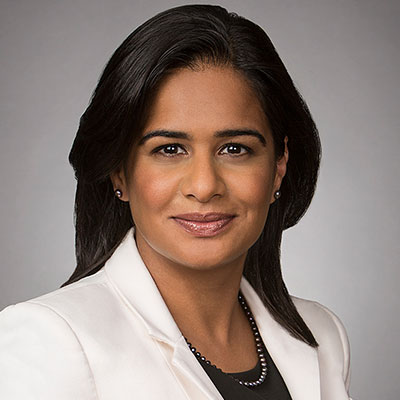2020 Private Fund Manager Compliance Update: U.S. SEC/CFTC Filing Deadlines and SEC Examination Priorities
As 2020 gets underway, advisers should plan for the upcoming year’s filing and compliance deadlines and assess their compliance programs as they relate to key compliance areas noted by the SEC as registered adviser examination priorities.
2020 U.S. SEC/CFTC Filing Deadlines for Private Fund Managers
Key deadlines for a private fund manager with a December 31 fiscal year end include:
- February 14
Form 13F is due for managers who exercised investment discretion over $100 million or more of non-control positions on a discrete list of public securities prepared by the SEC at any month end during 2019, with updates thereafter due within 45 days of the first three quarter ends of 2020.1
Also on this date, managers who file Form 13H due to large transactions in U.S. exchange-listed securities and options must submit their annual update filing,2 and managers that have large passive ownership percentages in voting securities of public companies may be required to file Schedule 13G or an amendment thereto.
- February 29
Managers that have filed certain CFTC exemptions3 from “commodity pool operator” registration covering funds engaging in CFTC-regulated hedging or swap activities must affirm their filings by this date.
Also on this date, Form PF is due for “large hedge fund advisers,” with updates thereafter due within 60 days of each quarter end.4
- March 30
Form ADV annual amendment deadline for registered and exempt reporting advisers.5
- April 29
Form PF is due for private equity and real estate fund managers.
Compliance personnel should turn their attention to Form ADV updates in January or February. January and February are also good times to schedule other required items, including compliance program testing, annual compliance program reviews (if not already completed), compliance training and delivery of annual privacy notices (where required) and audited financial statements.
2020 SEC Examination Priorities
On January 7, 2020, the SEC’s Office of Compliance Inspections and Examinations (“OCIE”) published its Examination Priorities for 2020. Many of the priorities reflect historical areas of concern routinely covered by OCIE in its examinations and include a focus on retail investor protection, financial technology innovation (such as digital assets),6 certain broker-dealer and municipal advisor activities, securities market infrastructure and SRO oversight. Some priorities of particular significance for private fund managers include:
- fiduciary duties, including the duty of care and duty of loyalty, with a focus on whether managers provide advice in the best interests of their clients and eliminate, or at least expose through full and fair disclosure, all conflicts of interest that might incline an adviser to render advice that is not disinterested;7
- risks associated with fees and expenses, and undisclosed (or inadequately disclosed) compensation arrangements that are in addition to management fees and/or performance fees;
- protection of client personal financial information, with a particular focus on governance and risk management, access controls, data loss prevention, vendor management, training and incident response and resiliency;
- compliance programs, including whether managers maintain effective programs to address the risks associated with fiduciary advice, prohibited transactions, best execution and disclosure of conflicts regarding such arrangements;
- accuracy and adequacy of disclosures provided by managers offering new or emerging investment strategies, notably strategies focused on sustainable and responsible investing that incorporate ESG criteria;
- private fund compliance risks, including whether controls are in place to prevent the misuse of MNPI and the use of affiliates to provide services to clients;
- AML programs, including examination of customer due diligence processes, adequacy of policies and procedures to monitor suspicious activities and timeliness of any required program testing;
- managers of private funds that have a greater impact on retail investors (e.g., firms that manage SMAs side-by-side with private funds); and
- newly registered and other firms that have never been examined or have not been examined for a number of years.
In announcing these and other priorities,8 OCIE noted its continued commitment to a risk-based, data-driven and transparent examination program that leverages technology as well as human capital. OCIE also noted that its list of priorities is not exhaustive, and OCIE will continue to monitor industry developments and market events in order to tailor its risk-based program to respond. Compliance personnel should ensure that resources are allocated to the compliance topic areas noted above.
For assistance with these or other items, please contact the Kirkland investment funds regulatory attorney with whom you usually work.
1. I.e., by May 15, August 14 and November 16.↩
2. Further amendments must be made to Form 13H promptly following the end of any calendar quarter in which any information in the Form becomes inaccurate for any reason. Managers with a 2019 fourth quarter filing obligation can satisfy their quarterly and annual filing obligations in a joint annual and amended filing made before January 10, 2020.↩
3. Including the de minimis exemption under CFTC Regulation 4.13(a)(3) most frequently used by private equity and real estate fund managers.↩
4. I.e., by May 30, August 29 and November 29. Although all quarterly filing deadlines for Form PF fall on a weekend in 2020, advisers should note that the electronic filing system for Form PF typically accepts filings made on weekends.↩
5. Managers should verify that their IARD account is funded and password is current well in advance of the deadline.↩
6. With respect to digital assets, OCIE expects to focus on the following matters in examinations: (1) investment suitability, (2) portfolio management and trading practices, (3) safety of client funds and assets, (4) pricing and valuation, (5) effectiveness of compliance programs and controls and (6) supervision of employee outside business activities.↩
7. OCIE noted that it has already integrated the Interpretation Regarding Standard of Conduct for Investment Advisers, adopted by the SEC on June 5, 2019, into its examination program; accordingly, OCIE will assess advisers pursuant to that Interpretation during examinations.↩
8. OCIE also noted that it has experienced challenges with examining non-U.S. registrants that are increasingly subject to laws on data protection and privacy that impact cross-border transfers of certain information. In response, OCIE is seeking additional information from non-U.S. advisers applying for SEC registration to ensure these firms can comply with the U.S. federal securities laws’ examination requirements.↩











